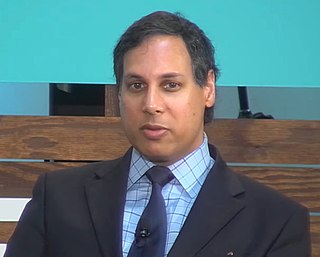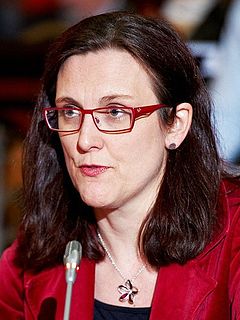A Quote by Sherrod Brown
Donald Trump talks a good game on trade, but he's never lived it. He's lined his pockets by outsourcing jobs to low-wage countries, and now he's talking about trade as if he actually means it?
Related Quotes
Donald Trump talks to a lot of people. That doesn't change his ultimate views. If you go back on YouTube and you look at Donald Trump talking about trade in the 1980s, in the 1990s, this is the same person today. He's no different. So, while a lot of people like to talk and argue about who's talking to President Trump and who's influencing him to make decisions, it's Donald Trump. It's his agenda. It's always been his agenda. And it always will be his agenda.
[Donald Trump] is talking a lot about redoing trade and that's the area that is getting globalists nervous. Number one, they want certainty. They do not want to see a disruption in trade. He's promising to rip up NAFTA, redo NAFTA. He's not going to do the Trans-Pacific Partnership, the TPP trade with Asia.
What Donald Trump has been concerned about, what he`s talked about, is when we get deals that don`t level the playing field, when we get deals that aren`t the kinds of best deals we can get, we want good deals, and those are free trade deals to lower the barriers between trade between two countries.
We're at the start of the process of talking about a trade deal. We're both very clear that we want a trade deal. It will be in the interests of the UK from my point of view, that's what I'm going to be taking in, into the trade discussions that take place in due course. Obviously [Donald Trump] will have the interests of the US. I believe we can come to an agreement that is in the interests of both.
I actually do not believe that Trump is anti-trade as such. He himself was a life-long trader in his own area, the real estate sector. And hasn't he just closed an arms deal with the Saudis valuing over $100 billion? The difference is that Trump sees trade as something with a winner and a loser. This seems to be a theme of his, and that makes us different. For us, trade is something where both sides win.
This rhetoric that Donald Trump is used is very consistent with rhetoric he's used on the campaign trail for a long time now. He'll always say - and you look - you can look at the past transcripts of his old speeches. He'll always say, I'm in favor of trade; trade is great, but these deals - NAFTA, TPP, the South Korean Free Trade Agreement - are all terrible.
The conservative goal has been the Third Worldization of the United States: an increasingly underemployed, lower-wage work-force; a small but growing moneyed class that pays almost no taxes; the privatization or elimination of human services; the elimination of public education for low-income people; the easing of restrictions against child labor; the exporting of industries and jobs to low-wage, free-trade countries; the breaking of labor unions; and the elimination of occupational safety and environmental controls and regulations.
That means we get other countries to play by our rules. You add up all the countries that we have trade agreements with, we have a surplus with them. You add up the countries we do not have a trade agreement with, that`s where a massive trade deficit comes from. So our goal is to get free trade agreements, and that means we get other countries to play and live by our rules so we can level the playing field.





























